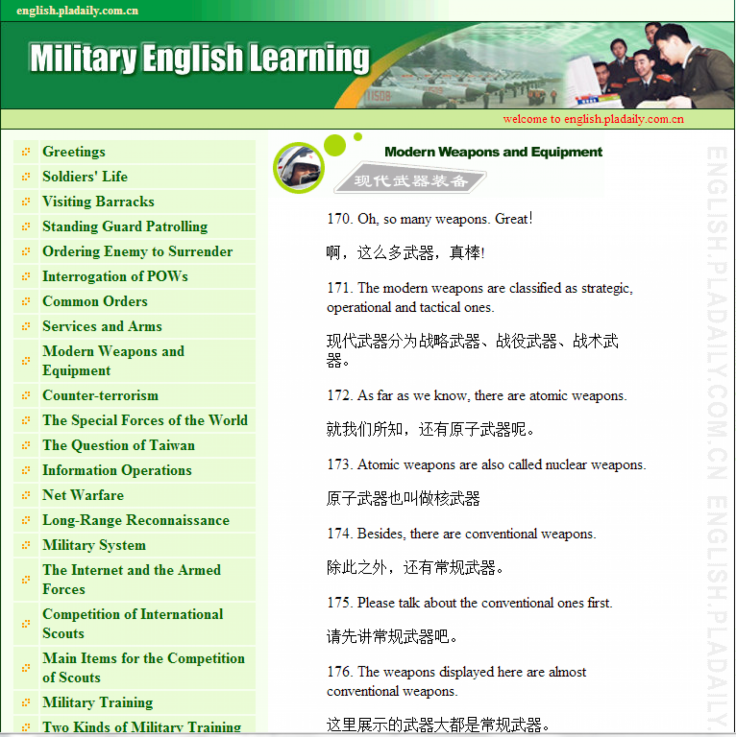China's People's Liberation Army English Guide Discovered Online

China’s new president, Xi Jinping, announced in March an increase in defense spending, beefing up the nation’s People’s Liberation Army, which would further equip a force that has more than 2 million individuals.
An additional $114 billion is expected to be put into funding various defense projects. One military resource that could use some improvement is the PLA’s Learning English resource, which can be found on the military’s website.
The webpage gives (sometimes broken) translations to key phrases that fall under several categories, presumably common topics of conversation, like say, trying to converse with an English-speaking prisoner of war.
The comprehensive list even includes a subcategory called “Ordering Enemy to Surrender” that features almost-exclusively exclamatory phrases like “You are defeated!” and “Hands up!” and “Put your hands up! Higher!”
After all that, the guide takes soldiers through an interrogation scenario.
Aside from the usual interrogation icebreakers “What’s your name?” and “What’s your nationality?” the English-language guide informs soldiers on how to approach getting insider intelligence: “Do you know our lenient policy towards POWs?”
Aside from that, the online guide allows PLA personnel to learn how to respond to seeing weapons, in flawless English.
“Oh, so many weapons. Great!” and “We saw this kind of missiles on TV” were among the phrases helpfully translated under the subcategory of “Modern Weapons and Equipment.”
To its credit, the translations also include more likely scenarios, such as going through basic military terms, common orders and ranks.
Another category discusses the “The Internet and the Armed Forces,” which seems to be becoming increasingly relevant as China’s digital population becomes more savvy and threats of cyberwarfare become more of a reality.
“The Armed Forces must be able to wage war online,” one phrase says. “The Internet is a powerful tool in open societies,” the guide translates.
Though “The Question of Taiwan” is a category featured on the page, it directs to an unrelated page. It seems that PLA soldiers looking to brush up on their Taiwan knowledge and key phrases will just have to find their translations elsewhere.
© Copyright IBTimes 2025. All rights reserved.






















